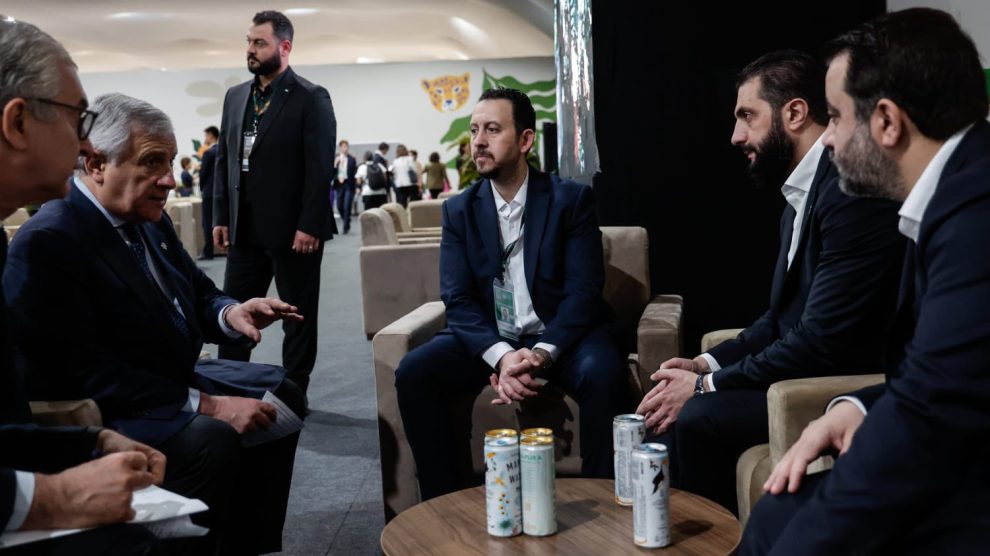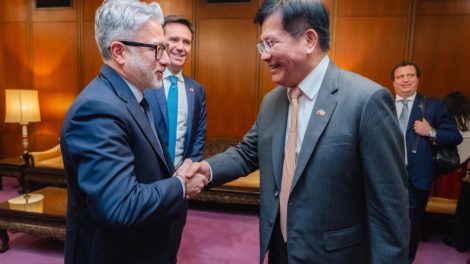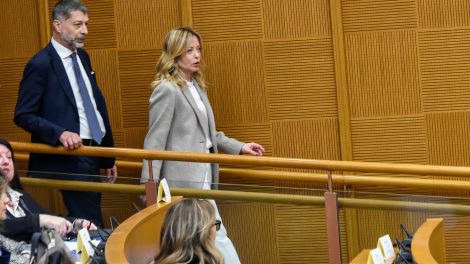The talks mark Rome’s bid to combine political normalisation with economic re-entry — emphasising investments rather than aid — and to position Italy as a key European interlocutor in the region’s stabilisation.
What’s happening:
- Diplomatic revival: Minister Tajani reaffirmed Italy’s role “in supporting Syria’s stability and an inclusive political process,” with particular focus on protecting Christian communities.
- Cultural diplomacy: On October 29, Italy became the first country to resume archaeological missions in Syria, with a joint team working at Tell Simhani near Latakia.
- A twinning agreement between Palmyra and Paestum – the first of the post-Assad era – was signed to foster cultural and tourism cooperation.
- Economic push: Italian Ministry of Foreign Affairs announced joint efforts to revive economic relations through Italian business expertise, especially in infrastructure and heritage restoration.
The economic pivot. President al-Sharaa’s new economic doctrine rejects “aid dependency” and promotes foreign investment as the driver of reconstruction.
- $28 billion in foreign capital entered Syria in the first half of 2025, spurred by new laws that eased fund transfers and offered tax incentives.
- The French group Accor plans to open 15 hotels by 2031; regional carriers — Emirates, Qatar Airways, Turkish Airlines, flynas, flyadeal — have resumed flights to Damascus.
- A “business-friendly” reform package includes banking transparency, license simplification, and incentives for Italian and Turkish firms in infrastructure and airport reconstruction.
- Energy and strategy:
- Syria’s energy recovery is central to its economic narrative
- Oil output has reached 1 million barrels/day, while natural gas production stands at 40 million cubic meters/day, exceeding domestic demand.
- The government is courting partnerships for offshore gas exploration and desert fields, offering joint venture opportunities to investors from Europe and the Gulf.
Big picture: Syria’s postwar reintegration hinges on regional economic realignment:
- Damascus is tightening ties with Saudi Arabia, showcased by al-Sharaa’s participation in FII 2025 in Riyadh.
- New accords are beginning with Turkey, Qatar, the UAE, Bahrain, Jordan, and even U.S. companies, pointing to a pragmatic pivot away from past alliances with Iran and Russia.
- For Italy, this creates an entry point for selective engagement — economic where feasible, humanitarian where necessary.
Zoom in: The U.N. Security Council voted on Thursday to lift sanctions on President Ahmad al-Sharaa and members of his government just days before his historic visit to White House on Monday. The U.S.-sponsored resolution passed with 14 votes in favour and a single abstention from China — a symbolic gesture underscoring Beijing’s cautious stance toward Syria’s reintegration (with an anti-West narrative?).
- American officials framed the move as recognising “a new era” for Syria following the fall of Bashar al-Assad in December 2024. Damascus hailed the vote as proof of growing confidence in al-Sharaa’s leadership.
Zoom out: According to Reuters, the U.S. is preparing to establish a military presence near Damascus, potentially linked to a non-aggression pact between Israel and Syria being brokered by the Trump administration.
- Washington views this as part of a broader strategic realignment in the Levant, signalling the formal end of Syria’s isolation.
- A White House meeting between President Trump and al-Sharaa — the first ever by a Syrian head of state — is set for Monday.
- It would symbolise Syria’s return to the international stage — and open a new diplomatic space for European actors, such as Italy.
Why it matters: Italy’s calibrated re-engagement with Syria reflects a broader Mediterranean strategy:
- Combine cultural diplomacy with economic presence.
- Support regional stabilisation without direct political alignment.
- Anchor Italy’s role as a bridge between Europe, the Levant, and the Gulf — in a moment when Damascus is rewriting its place in the postwar Middle East.
(Photo: X, @antonio_tajani)





